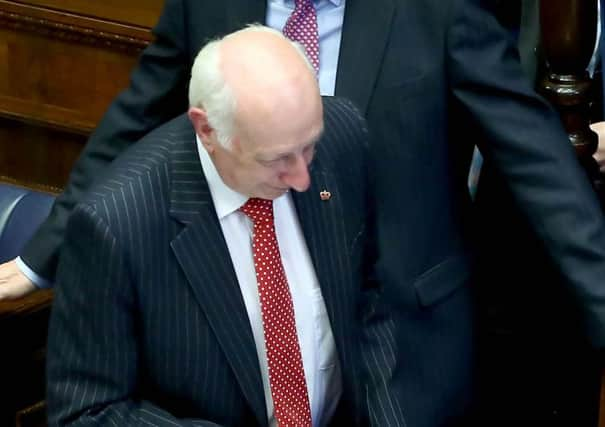RHI scandal: I have to make tough judgments, says speaker


Robin Newton – who is an East Belfast MLA in 2016, but who leaves behind his party mantle when acting in the neutral role of speaker – issued a statement on Monday evening in which he said the situation he faced was “clearly not contemplated” by those who originally drew up the Assembly’s rules.
The News Letter had raised a number of issues with the Assembly on Monday for the attention of Mr Newton.
Advertisement
Hide AdAdvertisement
Hide AdAmong them was the question of whether or not he considered Arlene Foster’s statement as a proper “ministerial statement” – something questioned a number of times by MLAs in the chamber.
He was also asked if he wished to respond to Mike Nesbitt’s suggestion that he should “reflect” on his own position.
No direct response was received to these at time of writing, although an email was sent to the News Letter in which he set out some of his reasoning behind Monday’s session.
The email (a copy of a letter sent out to all MLAs) notes that “by parliamentary convention, a speaker does not give reasons for his or her procedural decisions”.
Advertisement
Hide AdAdvertisement
Hide AdHowever, he said that he was sending out his letter because Monday was an “exceptional situation”.
He said that the first and deputy first ministers have exercised their powers jointly to recall the Assembly, “any revocation of that act must, similarly, be undertaken jointly”.
He said that “our procedures did not provide for [Monday’s] scenario” where the leaders had jointly recalled the Assembly but then failed to agree a joint position, and that such circumstances “were clearly not contemplated by this house in agreeing its standing orders”.
He concluded: “Assembly procedures may never deal effectively with unusual circumstances, and in that context it may fall to me to make difficult judgments on the basis of procedural advice.
“Clearly it would have been better if the Assembly had not been placed in this position by the Executive Office today, and I will be raising this further with ministers.”